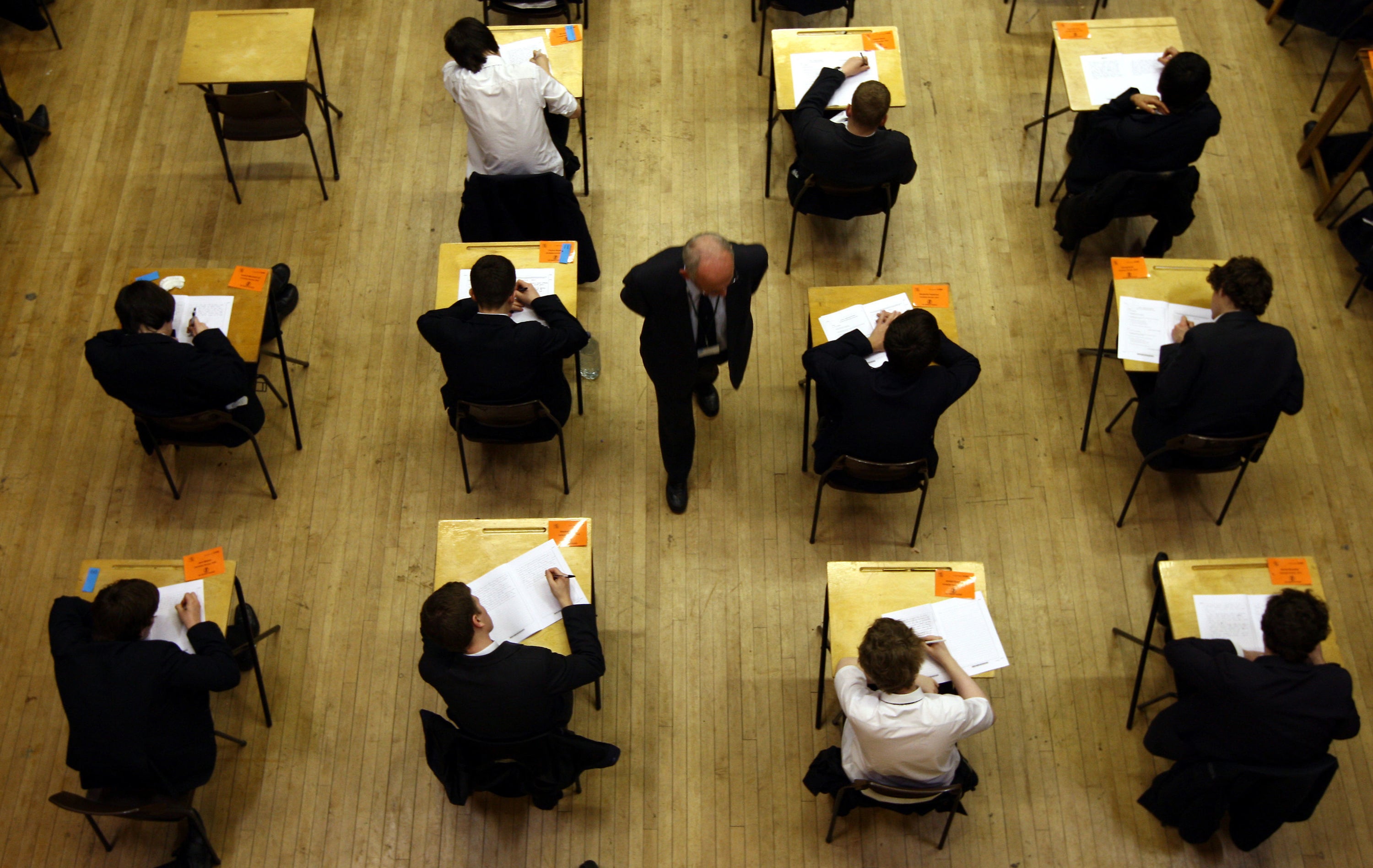Secondary school pupils fell further behind in the autumn term – study
Some lost three months’ learning in reading over the last academic term, new analysis shows.

Your support helps us to tell the story
From reproductive rights to climate change to Big Tech, The Independent is on the ground when the story is developing. Whether it's investigating the financials of Elon Musk's pro-Trump PAC or producing our latest documentary, 'The A Word', which shines a light on the American women fighting for reproductive rights, we know how important it is to parse out the facts from the messaging.
At such a critical moment in US history, we need reporters on the ground. Your donation allows us to keep sending journalists to speak to both sides of the story.
The Independent is trusted by Americans across the entire political spectrum. And unlike many other quality news outlets, we choose not to lock Americans out of our reporting and analysis with paywalls. We believe quality journalism should be available to everyone, paid for by those who can afford it.
Your support makes all the difference.Secondary school pupils fell further behind over the autumn school term, with those in some areas losing over three months’ progress in reading, a new study has found.
After falling 0.5 months behind in the autumn term, they are now a total of 2.4 months behind their expected reading level, Government research from the think tank Education Policy Institute and education software firm Renaissance Learning revealed.
Primary school pupils did not fall behind during the last term, with their reading levels similar to the summer term of 2021, but are still an average of 0.8 months behind in reading.
GCSE and A-Level students haven’t had a single normal year of their courses
However, the disadvantage gap – the difference between poorer pupils’ progress and that of their peers – for primary school pupils’ reading has widened. While disadvantaged pupils have fallen further behind in reading since the summer term, their peers have improved slightly.
The disadvantage gap for primary school pupils in maths has narrowed, with poorer pupils making up for more lost learning than their wealthier peers – making up 0.6 months’ progress compared with 0.3.
But for secondary school pupils, both advantaged and disadvantaged pupils fell further behind in reading last term, with greater losses seen for poorer pupils – 0.8 months compared with 0.4 months.
The study also found significant regional variations in the level of learning loss pupils experienced. Pupils who were not disadvantaged but lived in an area with high levels of deprivation experienced similar levels of learning loss to poorer pupils who lived in more affluent areas.
The greatest learning losses were experienced by pupils in the North East (1.3 months), the North West (1.2 months), and Yorkshire and the Humber (1.1 months), the study said.
Pupils in the South West (0.3 months) and London (0.3 months) had outcomes that were only just below expectations.
In secondary school reading, the greatest learning losses were experienced by pupils in the North West (3.2 months), the North East (3.1 months), and Yorkshire and the Humber (3.0 months).
Headteachers have previously raised concerns about the level of disruption experienced by pupils during the pandemic. Recent figures showed that 270 million school days were missed because of Covid-19 during the first full year of the health crisis.
Paul Whiteman, general secretary of the NAHT school leaders’ union, said: “GCSE and A-Level students haven’t had a single normal year of their courses.”
Mr Whiteman said many schools are still finishing the teaching of exam specifications, with time “getting very tight” for teacher-led revision sessions or exam preparation work.
“Many students and teachers feel more could be done to allow for this disruption,” he said.
Geoff Barton, general secretary of the Association of School and College Leaders, said: “Behind these statistics is the desperately difficult job that faced schools during the autumn term and continues to face them right now.”
“They are simultaneously trying to close gaps caused by Covid disruption while also coping with wave after wave of fresh disruption brought by new infections and resulting pupil and staff absence.
“They are particularly anxious about students who are due to take GCSEs, A-levels and other important qualifications in the summer.”
“As the research shows, the impact is uneven with disadvantaged students most likely to be detrimentally affected, and geographical variations which will stem from the variability of local infection rates.”
He added that it was “absolute folly” to withdraw free Covid tests for pupils and staff in schools from 1 April.